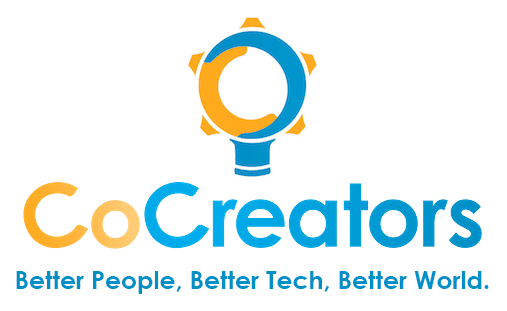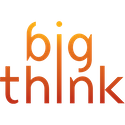As featured in H+ Magazine.
In early December of last year, Zoltan Istvan wrote an article for the Huffington Post entitled I’m an Atheist, Therefore I’m a Transhumanist. In that piece Istvan puts forth the proposition that many of the nearly one billion “worldwide godless people — atheists, agnostics, and those unaffiliated with religion” are transhumanists; they just don’t know it yet. I disagree with Istvan and I don’t think that transhumanists should dismiss what religious traditions have to offer to the transhumanist movement.
To begin with I would contend that both practically and philosophically no person is unaffiliated with religion altogether, even if one doesn’t claim to be an adherent to an organized religion. The evidence of the engraftedness of religion throughout human culture is an indisputable fact. This doesn’t mean that a person has to be personally satisfied with the current options of organized religions before them, but to deny religion’s impact on culture is not a very scientific proposition.
Additionally, both in a technical sense and practically speaking, no one is an atheist. The origin of the word “atheism” is derived from the Greek ἄθεος, essentially meaning “without god(s).” And if we investigate, even briefly, the claim that a human can be without god(s) we see that it is a contradiction as to who we are as persons.
We can see this because the definition of a “god” simply put is: “a person or thing that is excessively worshiped and admired; an all absorbing passion, pursuit, or hobby; something idolized.” By definition excess is simply an amount or quality greater than is necessary and worship, in its most basic form, means to have an ardent devotion or adoration for something. This means that one must simply have actual or substantial concern for a passion, pursuit, or hobby that is slightly more than needed for it to be considered a god.
As a result, anything can be a god/idol – an idea, watching too much basketball, a slight over-fulfillment of an instinct, or even a golden statue of a calf. The ancients understood this concept clearly and accepted such reasoning as commonplace and logical. We even find prominent historical evidence of this in the first and second commandments. So in this sense, no person can genuinely or logically be an atheist.
If though by atheist one means that they don’t adhere or believe in a Supreme Being, or a particular religious tradition’s understanding of God, then that is a different use of the word. Such a definition still does not negate the prior one; it simply requires that we fundamentally recognize ourselves as idolaters. It also could though, for the scientific person who considers evidence-based data, leave open the option of agnosticism outside of an organized religion. Even so, the simple fact that we all have gods in our lives and that we worship them – even in very basic ways – demonstrates that we are all religious beings.
This is not a novel concept, it is a basic theological understanding from the most ancient of times. But it does raise a larger point.
Should we leave open the possibility that religious traditions may have something to offer to the transhumanist movement?
And this is where I draw my critique of Istvan’s article most sharply. While, Istvan claims that the “godless” are not “in the business of criticizing religion,” his actual motivation seems to be to convert transhumanists away from belief in God rather than convincing “the godless” to become transhumanists. This to me seems to be more of a power play for the control of the transhumanist movement, which I would contend is not in the spirit of transhumanism. Allow me to explain why.
Istvan promotes his notion of a Transhumanist Wager – the idea that “everyone in the 21st Century must decide how far they are willing to go to use technology and science to improve their lives.” He believes that “the faithless” will be the ones who make these decisions. He goes on to say that many godless people will become proponents of “indefinite life extension and technologies that strip away humanness and promote our transhumanness.” He advocates such an idea because he explains that for him, the word transhuman means “beyond human.”
But such a position assumes that we have a grasp on what the human condition actually is in its totality – and this is a wildly speculative proposition at best. At the very least we should consider the possibility that our evolutionary advancement toward the greater use of tools and technology may imply that part of what it actually means to be human includes an evolution toward a state of being that is better than how we currently exist.
This follows many religious traditions notions that part of being human is the journey toward a more perfected, eternal state. In this way the prefix “trans” takes on a more nuanced meaning that implies traversing “across” the scope of what it might mean to be human. It is not a forfeiture of our humanity; it is a bettering of it.
Such an idea is not in conflict with Transhumanism or the majority of religious traditions, which advocate the holistic betterment of persons. More to the point, the concept of overcoming fundamental human limitations (often referred to in religious traditions as sin) is also a shared goal.
Moreover, Istvan states that the “transhumanist hero” is the individual who “constantly eyes improving their health, lifestyle, and longevity with science and technology.” In his opinion such persons are “not okay with the past age of feeling guilty for aspiring to be different or better than they were born — or for wanting the power to become godlike themselves.” Yet, it is in in this statement where Istvan reveals what he really wants to worship – himself. And that notion is fundamentally at odds with the majority of the world’s organized religions.
Humanity+ implies, in the origins of its plurality, that the coming technological journey is not one that we are going to (or should) make alone. It implies an ethical and helpful use of emerging technologies to enhance humans collectively and, as such, our understandings of what it fundamentally means to be human. It implies a community approach, a journey that we will make together through which we will make humanity better. On such issues of community betterment, religious traditions have centuries of prior experience and much to offer to the discussion.
In this regard, two pertinent religiously based ethical concerns that we might guard against occurring in the transhumanist movement are the idolatry/worship of individuals and the “othering” of persons. For as soon as we make gods of ourselves, our self-absorption dehumanizes us by separating us from our larger relational community. To offer such idol worship as the pinnacle of humankind is, in my opinion, Humanity- instead of Humanity+.





























